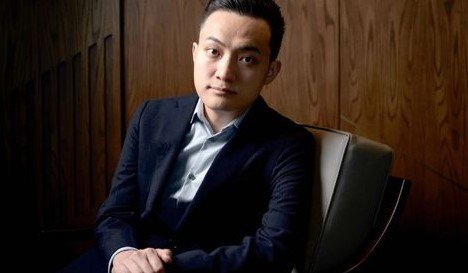In a bold move to support Telegram CEO Pavel Durov, Tron founder Justin Sun has proposed the creation of a decentralized autonomous organization (DAO) named FreePavel DAO. Sun has pledged $1 million to fund this initiative, aiming to rally the crypto community in defense of Durov, who was recently detained by French authorities. This proposal underscores the potential of blockchain technology to mobilize support and resources for legal battles.
Justin Sun’s Proposal
Justin Sun’s proposal has garnered significant attention within the crypto community. By suggesting the formation of FreePavel DAO, Sun aims to leverage the decentralized nature of blockchain to support Durov’s legal defense. The initiative calls for community backing, emphasizing the importance of collective action in the face of legal challenges. Sun’s pledge of $1 million is contingent on the DAO being created in a decentralized manner with sufficient community support.
The arrest of Pavel Durov has sparked widespread concern among crypto enthusiasts and industry leaders. Durov, known for his staunch advocacy of privacy and freedom of communication, has been a prominent figure in the tech world. His detention has raised questions about the motivations behind the arrest and the potential implications for the broader tech and crypto communities.
Sun’s initiative is not just about financial support; it also aims to send a strong message about the power of decentralized systems. By involving the community in the creation and management of the DAO, Sun hopes to demonstrate the effectiveness of blockchain technology in addressing real-world issues. This move could set a precedent for future efforts to use decentralized platforms for social and legal causes.
Community Response
The response from the crypto community has been overwhelmingly positive. Many see Sun’s proposal as a testament to the solidarity within the industry. Prominent figures, including Ethereum co-founder Vitalik Buterin, have expressed their support for the initiative. Buterin highlighted the importance of standing together to protect the principles of privacy and freedom that underpin the crypto movement.
Social media platforms have been abuzz with discussions about the FreePavel DAO. Hashtags like #FreePavel and #SupportDurov have trended, reflecting the widespread support for Durov and the proposed DAO. Community members have praised Sun for his proactive approach and willingness to put his own resources on the line for a cause he believes in.
However, some have raised concerns about the potential risks associated with such initiatives. The decentralized nature of DAOs can make them vulnerable to exploitation and mismanagement. Ensuring transparency and accountability will be crucial to the success of the FreePavel DAO. Sun and other proponents of the initiative will need to address these concerns to maintain community trust and support.
Implications for the Crypto Industry
The FreePavel DAO initiative has broader implications for the crypto industry. It highlights the potential of blockchain technology to facilitate collective action and support for social causes. By demonstrating the practical applications of decentralized systems, Sun’s proposal could inspire similar initiatives in the future. This could lead to increased adoption of blockchain technology beyond the realm of finance and into areas such as legal defense and social activism.
The arrest of Pavel Durov has also brought attention to the regulatory challenges faced by tech and crypto companies. The lack of clarity around the charges against Durov has fueled speculation and concern within the industry. This incident underscores the need for clear and consistent regulatory frameworks that protect the rights of individuals and companies while ensuring accountability and compliance.
Sun’s proposal has the potential to strengthen the crypto community’s resolve to advocate for fair and transparent regulations. By rallying support for Durov, the community can send a strong message to regulators about the importance of protecting innovation and privacy. This could lead to more constructive dialogue between industry leaders and policymakers, ultimately benefiting the entire tech ecosystem.


 Bitcoin
Bitcoin  Ethereum
Ethereum  Solana
Solana  Cardano
Cardano  Chainlink
Chainlink  Sui
Sui  Avalanche
Avalanche  Polkadot
Polkadot  Aptos
Aptos  NEAR Protocol
NEAR Protocol  Mantle
Mantle  Internet Computer
Internet Computer  Cosmos Hub
Cosmos Hub  Bittensor
Bittensor  Filecoin
Filecoin  Render
Render  Celestia
Celestia  Algorand
Algorand  Arbitrum
Arbitrum  Optimism
Optimism  Jupiter
Jupiter  Stacks
Stacks  Immutable
Immutable  Injective
Injective  Sei
Sei  The Graph
The Graph  Flow
Flow  Pyth Network
Pyth Network  dYdX
dYdX  MultiversX
MultiversX  THORChain
THORChain  Beam
Beam  Akash Network
Akash Network  Illuvium
Illuvium  Metis
Metis  Manta Network
Manta Network  Dymension
Dymension  Kujira
Kujira